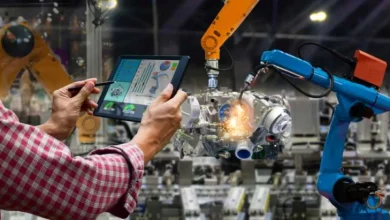Can you make kombucha with beer equipment?

Introduction:
As the popularity of kombucha continues to grow, some homebrewers and craft beverage enthusiasts find themselves intrigued by the idea of brewing kombucha using beer equipment. The question arises: Can the same gear used for brewing beer be repurposed for creating this probiotic-rich fermented tea? In this article, we’ll explore the compatibility of beer equipment with kombucha brewing and discuss the nuances of combining these two fermentation worlds.
Common Equipment:
Homebrewers often have a range of equipment used in beer brewing, including fermentation vessels, airlocks, siphons, and bottles. Fortunately, many of these tools can be repurposed for kombucha brewing.
Fermentation Vessels:
Primary and secondary fermentation vessels are essential for both beer and kombucha production. Glass carboys, plastic fermenters, or stainless steel vessels can be used interchangeably, provided they are thoroughly cleaned and sanitized between uses.
Airlocks:
Airlocks, designed to allow gases to escape during fermentation while preventing contaminants from entering, are universal in both beer and kombucha brewing. They play a crucial role in maintaining a controlled fermentation environment.
Siphoning Equipment:
Siphoning is a common practice in both beer and kombucha brewing. Beer siphoning equipment, such as racking canes and tubing, can be repurposed for transferring kombucha between vessels during various stages of the brewing process.
Bottling Equipment:
Bottling wands, caps, and cappers used in beer brewing can also be utilized for bottling finished kombucha. The same principles of cleanliness and sanitation apply to prevent contamination.
Temperature Control:
Controlling fermentation temperature is crucial for both beer and kombucha. Many beer brewers have temperature control equipment, such as fermentation chambers or temperature-controlled rooms, which can be beneficial for kombucha production as well.
Cleaning and Sanitization:
One of the most important aspects of successful brewing is maintaining a clean and sanitized environment. Beer brewers already accustomed to thorough cleaning practices can seamlessly apply these skills to kombucha brewing.
Considerations for Cross-Use:
While much of the equipment is interchangeable, it’s important to consider potential cross-contamination. Some brewers may choose to designate specific equipment solely for kombucha to avoid any lingering flavors or aromas from previous beer batches.
Kombucha-Specific Considerations:
Kombucha introduces unique elements, such as the SCOBY (Symbiotic Culture Of Bacteria and Yeast), which requires a slightly different approach. It is advisable to reserve a vessel exclusively for kombucha due to the presence of the SCOBY.
Experimentation and Adaptation:
Homebrewers are known for their experimental spirit. Adaptations and innovations in equipment use can lead to exciting cross-brewing experiments, producing unique hybrid beverages.
Conclusion:
In conclusion, the worlds of beer and kombucha brewing can harmoniously coexist, sharing much of the same equipment. Homebrewers with a penchant for experimentation can leverage their beer-brewing skills to create delicious kombucha. While some considerations are necessary, the use of beer equipment for kombucha brewing showcases the versatility and creativity inherent in the craft beverage community. So, if you’re a beer brewer curious about kombucha, don’t hesitate to bridge the brews and embark on a flavorful fermentation journey!
If you are ready to open a craft brewery, you can contact us. Micet Craft’s engineers will provide you with a list of craft brewery equipment and related prices. Of course, we can also provide you with professional turnkey brewery solutions, allowing you more time to focus on brewing delicious beer. Micet Craft very much hope to cooperate with you, my friend!



